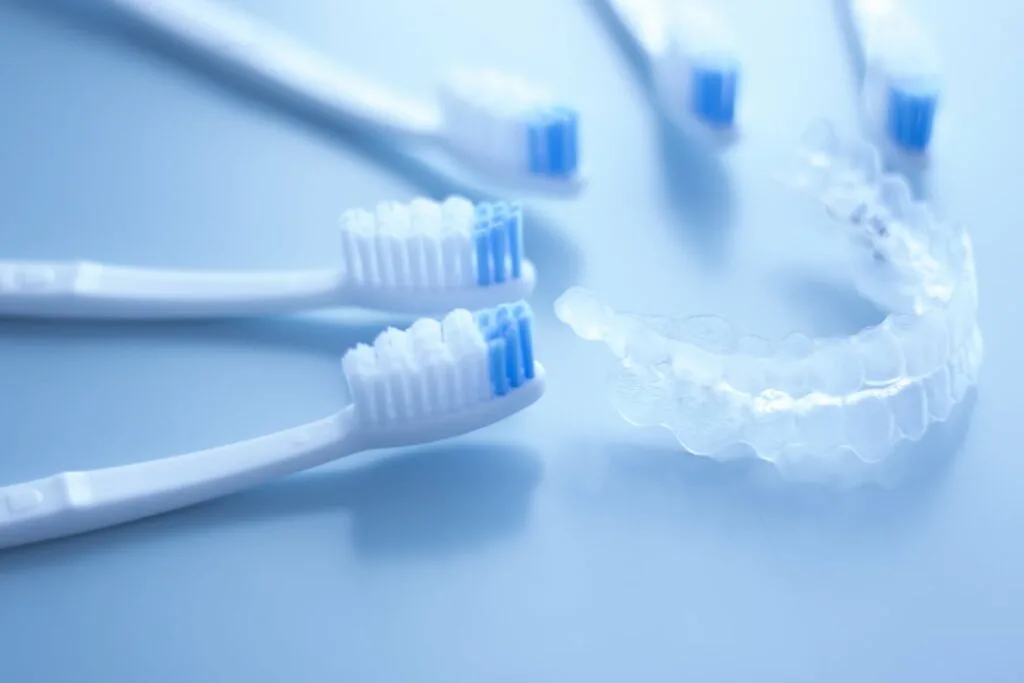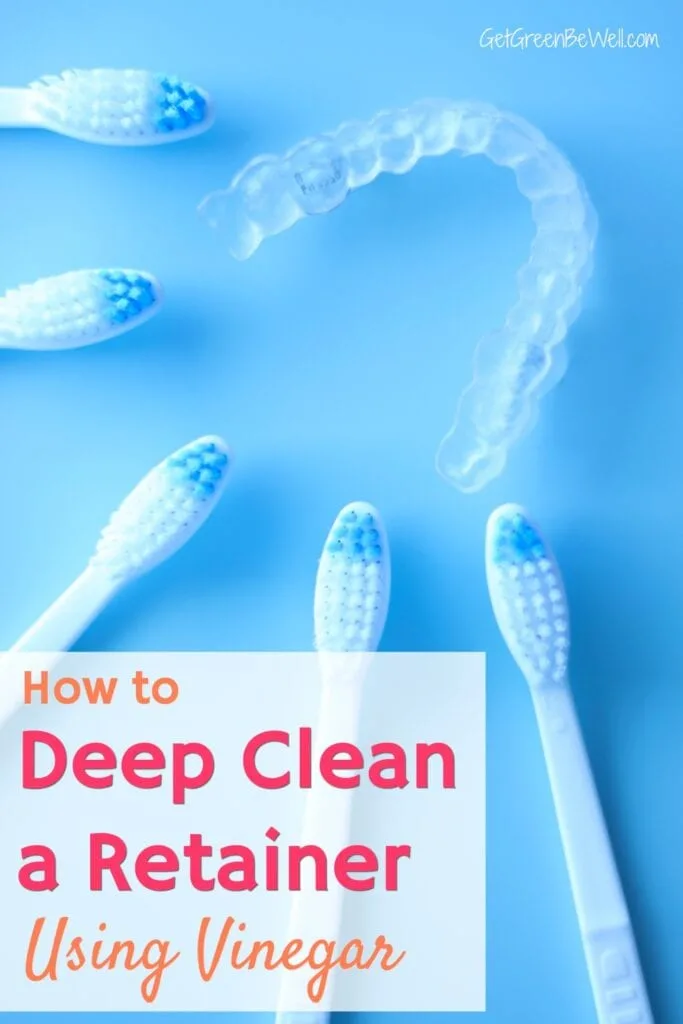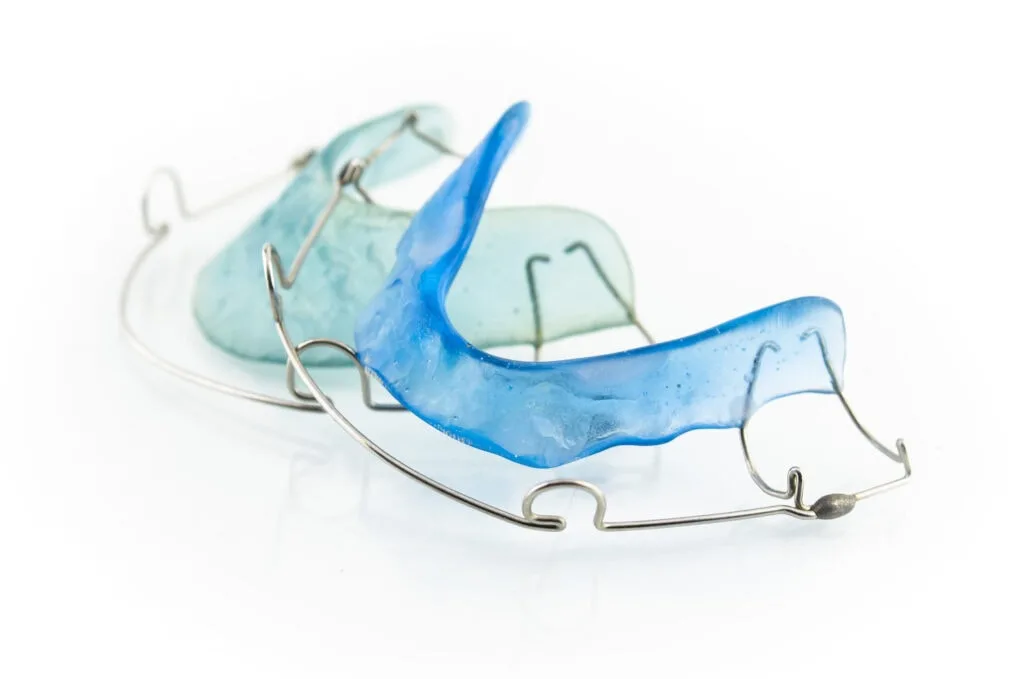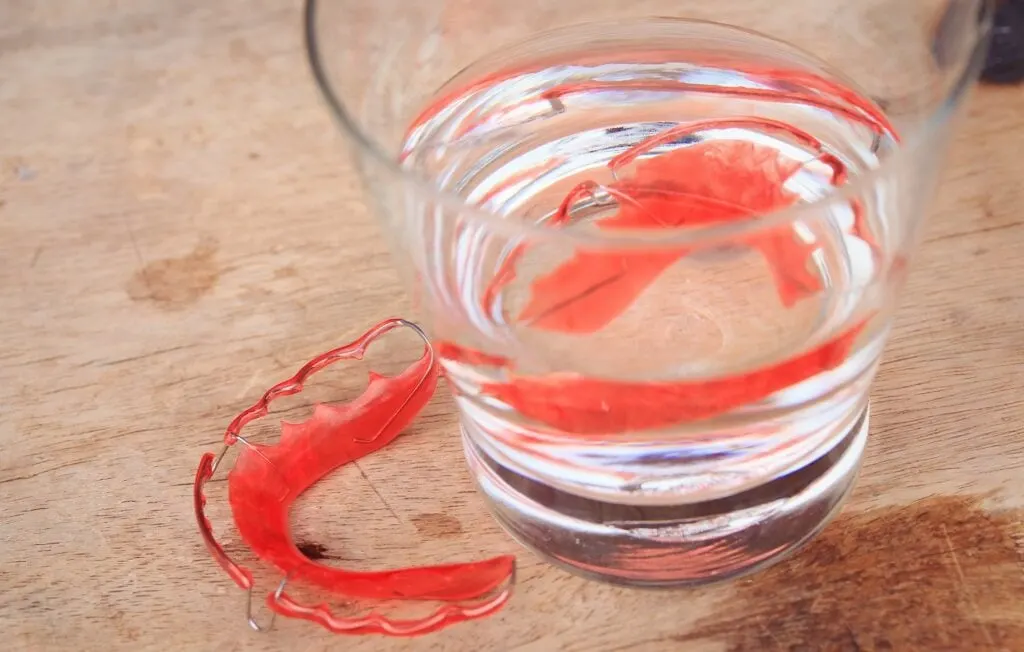When I got my retainer, the orthodontist assistant said they recommended cleaning with soap and water. That I was supposed to take a soapy washcloth and individually blot each tooth impression then wipe away with water for best results. And in 10 seconds I thought, ‘Yeah, that’s never going to happen.’ Which is why I instantly wanted to know how to clean retainers with vinegar.

Cleaning Retainers
I understand why an orthodontist will tell you to baby the plastic retainer with gentle soap and water. They don’t want to suggest anything that might make the retainer break or warp sooner than it should.
But in all honesty, that soap residue is likely going to stay on the retainer. Which makes for a pretty disgusting and miserable experience when you put it back in your mouth. Right?
With my retainer, I used my toothbrush and toothpaste to clean the retainer. Everyone does, right?
If it’s good enough for your teeth and mouth, I don’t understand why it wouldn’t be good for cleaning retainers, right? (P.S. Toothpaste is fine for keeping your retainers clean, but don’t use a whitening toothpaste. It’s too harsh.)
Well, our mouths are different living systems. So cleaning with toothpaste might not be enough.

That’s because we have good bacteria in our body that can fight germs. So if your toothbrushing misses some places every now and then, it might not be a huge deal.
Plus, our mouths are constantly chewing and drinking and keeping the healthy balance in our mouth changing.
However, a retainer is a plastic item. What is left on there isn’t going to naturally come off. When it’s not cleaned properly, bacteria and viruses will continue to grow.
So it’s like putting a bacteria-coated substance in your mouth every week. That is, if you don’t clean your retainer.
While you can keep germs and gross stuff at bay using toothpaste and a toothbrush, it is wise to give your retainers a deep cleaning every once in a while to kill off germs, bacteria, and anything else that might be growing on the retainer. Plus, a deep clean can work at getting any grime and built-up deposits off of your retainer.
Keep in mind, there are products you can buy to clean retainers. Retainer Brite is an effervescent cleaning tablet, although you might not be comfortable with the price or the ingredients (why is corn syrup solids in it?). And this ultrasonic retainer cleaner can remove buildup and germs, too. But do you really want to spend more money when you can clean retainers for free with natural products already at home?
When to Clean Retainer
So, how often should you deep clean your retainer?

The answer is going to depend on many factors. But a good rule of thumb is once a week. Or at least once a month at the minimum.
Remember, if your retainer is not clean, then you are putting something dirty and possibly unhealthy on your teeth and gums.
If you have concerns about cleaning retainers with vinegar, be sure to talk to your orthodontist or dentist. Because if you notice your retainer is always foul-smelling, gross or causing you concern, then something else might be going on.
It’s also a good idea to clean a retainer immediately in any of the following situations:
- The retainer tastes bad
- Retainer smells bad
- A film can be seen on the retainer (white film, clear film, colored film, etc.)
- Spots or stuck-on debris can be seen. This can be from food, mineral deposits, or tarter build-up.
- The retainer looks cloudy or discolored
- You have had a cold
- Your retainer hasn’t been cleaned in a while, even with just toothpaste and a toothbrush
How to Clean Retainers with Vinegar
Cleaning retainers with vinegar is super easy and uses what you already have at home. Assuming you have white vinegar in the kitchen. (Here’s why you wouldn’t want to use any other vinegar to clean retainers with.)
- Use a small bowl that will hold the retainer. I like to use a glass bowl, since vinegar is acidic. But plastic will work fine.
- Add equal parts white vinegar and slightly warm water (not boiling hot, as that will warp or break your retainer). The solution will be 1/2 vinegar and 1/2 water. (You could do a full strength white vinegar solution, too, if needed.)
- Place your retainer in the vinegar solution. Make sure all parts of the retainer are covered.
- Let sit in the vinegar for 20 minutes to an hour.
- Remove the retainer.
- Using a soft bristle toothbrush (the one you brush your teeth with is fine), gently brush the retainer to remove any debris, film or build-up.
- Rinse with cool water.
- If you still notice spots or tartar on your retainer, or if the retainer still smells, repeat the process again.
- Let air dry.
Baking soda is often recommended as an ingredient to clean a retainer. But just like some toothpastes, it can be abrasive and damage the retainer. It can create minor nicks and scratches which you don’t want.
This method of cleaning retainers with vinegar is safe, natural and non-toxic.
However, it’s not necessary to do every night. The vinegar could be too strong to be used every single night. So just aim for once a week.
Never boil your retainer in water. It can warp or melt the retainer.
How to Get Rid of Vinegar Taste
After cleaning retainers with vinegar, you might be worried about a vinegar taste.
And, yes, there might be a slight vinegar taste left behind.

If you find there’s a taste that you don’t like, you can soak the retainer in cold water for a few hours or overnight to help the vinegar wash off.
Or you can soak the retainer in mouthwash for a few minutes to remove the taste.
More Ways to Use Vinegar
You might be surprised that something that can clean retainers can also work on so many other problem spots in your home.
You can clean a showerhead with vinegar so that your shower is as powerful as it could be. Use vinegar to clean toilets.
And the kitchen pantry ingredient also works remarkably well for killing weeds, too.
